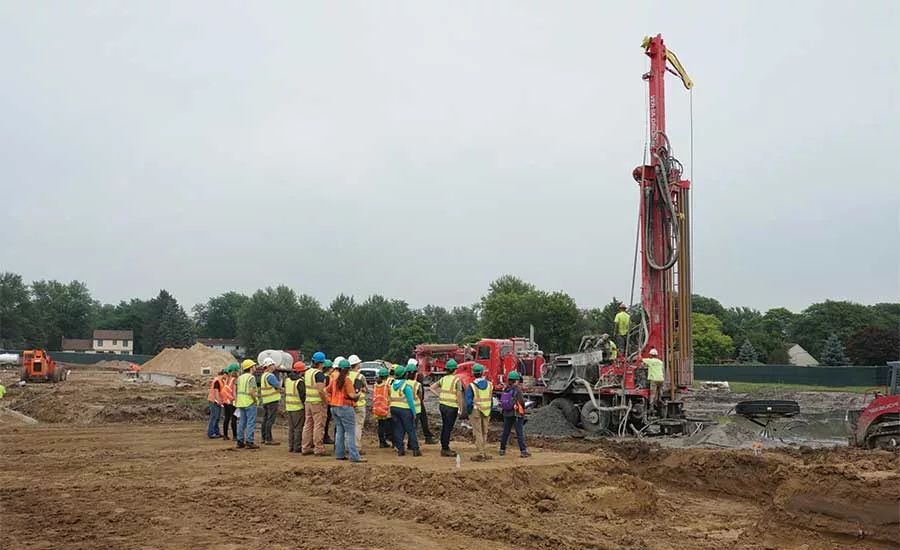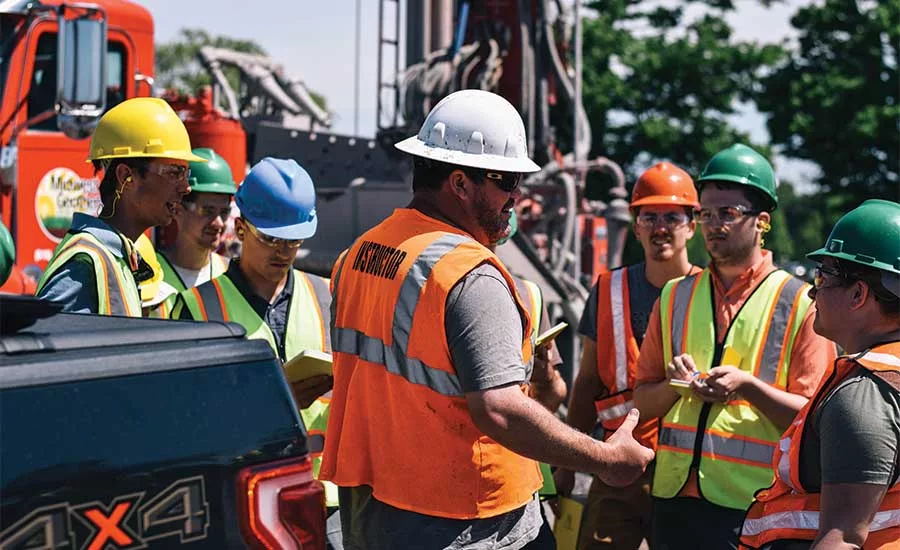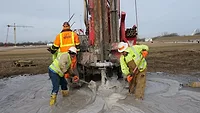Suppliers, Manufacturers Benefit from Thinking Like Drillers

Observation at the jobsite and at demos can help those in the drilling industry who aren’t drillers to learn to better support those who are.
Source: Brock Yordy photos


How does a self-taught industry teach itself? No, seriously. The most common question I am asked is, “How do I become a driller?”
New hires at drilling companies should start the process with practical field experience and build from there. Drillers and employees of drilling companies have plenty of opportunities to further their knowledge. Training classes are offered locally and nationally to help provide insight and develop capabilities.
Beyond classes, there is the internet, which allows new and veteran drillers to research situations and find solutions. A driller can join an online group to connect with men and women from around the world, all sharing their drilling experiences. Finally, there is more published work on drilling than ever before. These resources are effective because drillers start their training in the field and the subject matter is relatable.
Practical field experience is the divide between a driller and a new hire working for a drilling supply company, equipment manufacturer or other industry support companies. When I am asked by a supplier or manufacturer employee, “How do I become a driller?” what they are really asking is, “How can I think like a driller?” Thinking like a driller and being a driller are two separate concepts. A driller has years of experience that give him or her the knowledge to competently complete a borehole. Thinking like a driller is insight into what drillers do to better support their work in the field. An industry professional who thinks like a driller has the knowledge required to:
- Communicate effectively with the driller and crew.
- Operate safely on a jobsite.
- Clearly understand the drilling processes and how it pertains to their part of the industry.
Support staff who think like drillers can improve drilling methods, product installation, resource extraction processes, equipment innovation, regulations and safety.
Communication
The first component to thinking like a driller is to understand project terminology and effective jobsite communication. The best way to understand jobsite terminology is to ask the driller for a clear explanation of a component’s name. Jobsite terminology can change with the brand of equipment, the type of drilling method and geographic location. Think of it like the term “carbonated soft drink,” which could go by the name soda, cola, pop or Coke. Do not be afraid to question any drilling term that seems unfamiliar or unclear. It’s a self-taught industry, and one component can have several different names depending on who you ask.
Internet forums and groups are another resource for understanding jobsite terms. Asking the driller questions is a great way to develop effective field communication skills for information gathering. In learning how to think and communicate like a driller, take time to evaluate the drilling crew’s communication dynamics. On many sites, communication can go from full conversations about a process, to hand signals to, finally, executing tasks with only eye contact and head nods. The key is to maintain clear communication to continue operations safely. When arriving on site, discuss these topics before work begins: terminology, jobsite signals, safety, the job process from start to finish, and the driller’s expectations for the job. Having that information will help observers get the most from the experience.
Think Safety
The second component to thinking like a driller is safety. In every other situation, safety is always the first topic. However, I believe that learning how to communicate first allows for precise and candid communication about safety. To think like a driller is to understand all danger areas on site. A good driller will know where every employee and visitor is on the jobsite. They will be aware of all the tasks being completed. To think like a driller is to understand how each task affects the next, and staying two steps ahead of each process. It is essential to have a complete situational awareness of the jobsite and an understanding of any dangerous process. A safe jobsite depends on consistent procedures that follow each step the same way every time. To think like a driller is to have everyone’s safety in mind, and to know that you can stop any unsafe act. A driller’s number one job is to bring everyone home safely.
The Drilling Processes
The third component to thinking like a driller is a clear understanding of the drilling process. The entire drilling process depends on six core fundamentals. Regardless of borehole direction, drilling method or the purpose for the hole, these “core six” create the basis for a successful completion. Yes, there are millions of variables in drilling that change the complexity of any given project, but the core six stay the same:
- Cutting action of the soil
- Method of cuttings removal
- Hole stabilization
- Minimal impact to surrounding geology and environment
- Installation or extraction of product
- And, above all else, protection of the environment.
A competent driller, through years of project success and failure, will never forget the core six. A great driller will efficiently execute each step every time they drill a hole.
Thinking like a driller starts with understanding the function of the drill bit and the cutting action. After the bit creates solids, a flushing media moves cuttings to surface. The media is made up of either water or air, and can be augmented with bentonite, polymers or foam. All flushing media has two critical tasks: carry cuttings out of the hole and aid in hole stabilization. When a hole is properly stabilized, the impact to the surrounding geology is minimal. A clean and stable borehole allows for easy product installation or extraction. Finally, all drilling processes must, above all else, prevent harm to the environment.
A clear understanding of the core six fundamentals opens up the ability to think critically about the drilling process. The drilling process makes up about 30 percent of the time a drilling rig is on site. The other 70 percent is split between downhole analysis, tripping rods in and out of the hole, and downhole issues. When you have the chance to be in the field, document every process no matter how big or small. Discuss observations with the driller and helpers to see how each process affects the job.
When individuals start thinking like drillers, they have the ability to evaluate all jobsite processes critically. That evaluation leads to better ways to support our drillers and to better drilling projects.
Check out our DrillEdu webinar to learn more about the building blocks to think like a driller!
In an industry where experience is the only way to gain knowledge, an individual who wants to think like a driller must take the initiative. I have been fortunate to be mentored by and work alongside the best men and women at Baroid IDP, Laibe Corp., Gefco, the United States military, and at various other mining and drilling companies. The greatest lesson I have learned in my career is that it’s rarely just one person on site who has the best solution. It takes a team combining years of experience to improve processes and troubleshoot problems effectively. “Experience is what you get when you didn’t get what you wanted,” says “The Last Lecture” author Randy Pausch. “And experience is often the most valuable thing you have to offer.” My 2019 challenge to the drilling industry is to pull back the curtain on drilling and help non-drillers think like a driller. Together, we can advance the industrial drilling industry beyond what’s imaginable.
Looking for a reprint of this article?
From high-res PDFs to custom plaques, order your copy today!





